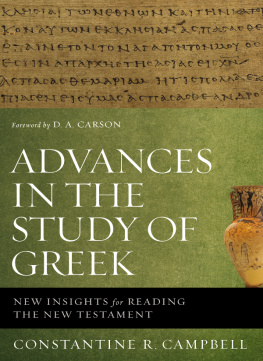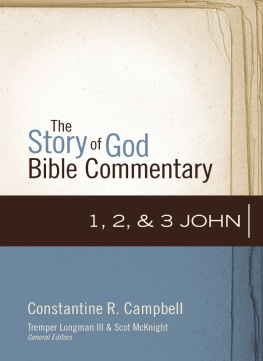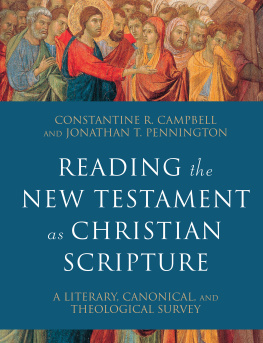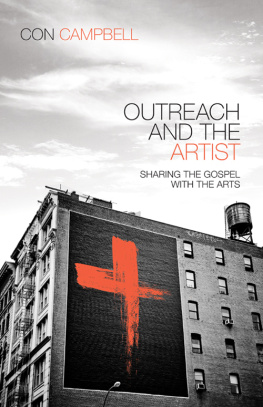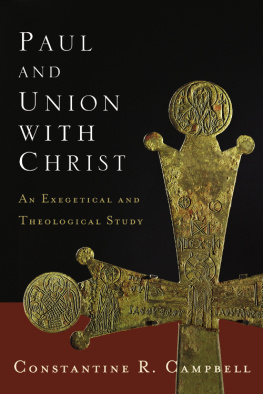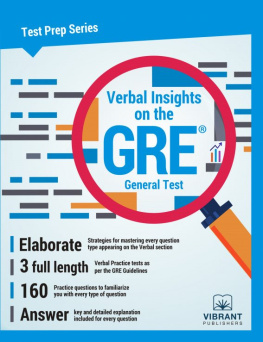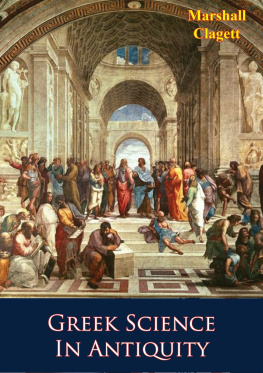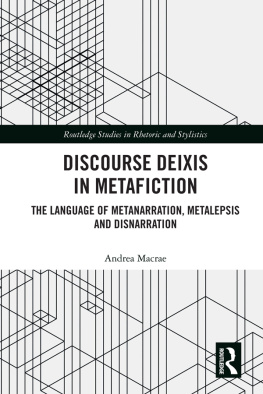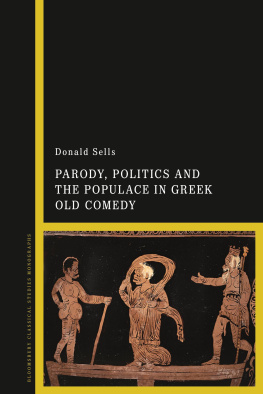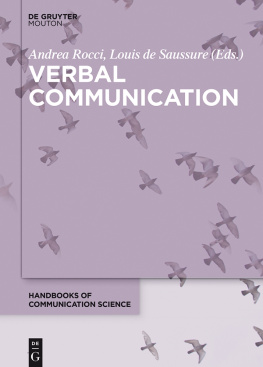A brilliant idea, successfully executed! Anyone interested in grasping key issues in the modern study of New Testament Greek can do no better than read this clear and excellent survey.
Moiss Silva, Retired professor of New Testament, author, and editor
The complexity, inaccessibility and even hostility of the debates within Greek studies have offered scholars a ready excuse for tuning out and waiting for something useful to come about. And although developments in the last decade have demonstrated potential payoff for exegetes, accessibility to this research in summary form has continued to be a vexing problem until now. Campbells Advances in the Study of Greek stands to deprive even the most cynical reader of the tired excuse that there is nothing new or useful to be learned about Greek. The sweeping overviews of recent discussions, combined with recommended readings at the end of each chapter, enable readers without substantial background to gain a meaningful understanding of the issues, whats at stake, and potential ways forward.
Steven E. Runge, Scholar-in-Residence, Logos Bible Software
Want to get up to speed on recent research in New Testament Greek? There is no better book (in fact, this is the only book!). Con Campbell leads you expertly through the complexities of advances in scholarship so you can be a better teacher, preacher, and student of the Word. Highly recommended!
Andreas J. Kstenberger, Senior Research Professor of Biblical Theology and New Testament, Southeastern Baptist Theological Seminary
Campbell takes us on an impressively comprehensive tour of current issues in Greek language study, especially as they relate to the New Testament. The latest in linguistic theory, aspect, deponency, discourse analysis, pronunciation they are all there, and many more, all covered in an accessible way without compromising standards. The book is above all practical, aiming to bring pastors, teachers and students of Greek to a better understanding of what is going on in Greek studies, as Con puts it. His final plea for a deeper engagement with Greek is compelling: this book is the ideal companion in the endeavor.
John A. L. Lee, Macquarie University
Students and even some professors! whose experience with Koine Greek has been limited primarily to standard elementary and intermediate textbooks, would be astounded to know the height and breadth and depth of work that has been accomplished on the original language of the New Testament in recent years. We live in a time in which great advances are taking place in a variety of directions, but both the specialized nature of the discussions and their relegation to stuffy conference rooms and technical journal articles, have limited the needed impact on frontline Greek pedagogy. Enter Con Campbell, who has provided us with a helpful overview of the history and most salient aspects of paradigm-shifting discussions.
George H. Guthrie, Benjamin W. Perry Professor of Bible, Union University
ZONDERVAN
Advances in the Study of Greek
Copyright 2015 by Constantine R. Campbell
ePub Edition June 2015: ISBN 978-0-310-52453-3
Requests for information should be addressed to:
Zondervan, 3900 Sparks Dr. SE, Grand Rapids, Michigan 49546
Library of Congress Cataloging-in-Publication Data
Campbell, Constantine R., author.
Advances in the Study of Greek : New Insights for Reading the New Testament / Constantine R. Campbell.
pages cm
ISBN 978-0-310-51595-1 (softcover)
1. Greek language, Biblical Syntax. 2. Greek language, Biblical. I. Title.
PA851.C36 2015
487'.4 dc23
2014031678
All Scripture quotations, unless otherwise indicated, are taken from The Holy Bible, New International Version, NIV. Copyright 1973, 1978, 1984, 2011 by Biblica, Inc. Used by permission. All rights reserved worldwide.
Any Internet addresses (websites, blogs, etc.) and telephone numbers in this book are offered as a resource. They are not intended in any way to be or imply an endorsement by Zondervan, nor does Zondervan vouch for the content of these sites and numbers for the life of this book.
All rights reserved. No part of this publication may be reproduced, stored in a retrieval system, or transmitted in any form or by any means electronic, mechanical, photocopy, recording, or any other except for brief quotations in printed reviews, without the prior permission of the publisher.
Cover design: Studio Gearbox
Cover images: CC by 3.0; Thinkstock
Interior design: Matthew Van Zomeren
15 16 17 18 19 20 21 22 23 24 25 /DCI/ 20 19 18 17 16 15 14 13 12 11 10 9 8 7 6 5 4 3 2 1
For Nono, who took my advice and married Nona
EXPANDED TABLE OF CONTENTS
(by D. A. Carson)
| BDAG | W. Bauer, F. W. Danker, W. E. Arndt, and F. W. Gingrich, Greek-English Lexicon of the New Testament and Other EarlyChristian Literature. 3rd ed. Chicago, 2000. |
| BT | The Bible Translator |
| CBQMS | Catholic Biblical Quarterly Monograph Series |
| ConBNT | Coniectanea biblica: New Testament Series |
| EAGLL | Encyclopedia of Ancient Greek Language and Linguistics |
| JBL | Journal of Biblical Literature |
| JSNTS | Journal for the Study of the New Testament |
| JSNTSup | Journal for the Study of the New Testament Supplement Series |
| LBS | Linguistic Biblical Studies |
| LXX | Septuagint |
| Neot | Neotestamentica |
| NovTSup | Novum Testamentum Supplement |
| SBG | Studies in Biblical Greek |
| SNTSMS | Society for New Testament Studies Monograph Series |
| TJ | Trinity Journal |
| WUNT | Wissenschaftliche Untersuchungen zum Neuen Testament |
A lmost twenty years ago, I found myself in a quiet discussion (perhaps I should say debate) over aspect theory. I was arguing that, whatever its weaknesses, aspect theory enjoys stronger explanatory power than the regnant model, which in effect understands Greek verbs in the indicative to grammaticalize time, and Greek verbs in the other moods to grammaticalize Aktionsart. My interlocutor, well trained as a classical scholar as well as being an expert in the Greek New Testament, took the contrary position. We tossed examples back and forth, until he brought the discussion to a close by asserting, rather dismissively, that I was welcome to defend theories that had enjoyed only a few decades of life; he would prefer to stick with the understanding of the Greek verb that had enjoyed three millennia of life.
Two things were immediately obvious: he had read little in linguistics, and, fine scholar though he was, he knew little of the history of the study of the Greek verb. The grammarian Dionysius Thrax (second century BC) did not understand the Greek verb the same way that, say, Erasmus did. Erasmus, not to mention the Reformers, did not anticipate the rise of Aktionsart theory in the nineteenth century so sweeping a development that for almost a century and a half one would be hard-pressed to find a bona fide Greek scholar who had not bought into such theory. Certainly Aktionsart theory had greater explanatory power than what it displaced. In other words, there had been some advances in the study of the Greek verb. The question now, however, is whether the large number of texts that Aktionsart explains poorly might be better served by aspect theory. In other words, can we speak of further advances in the study of Greek? Or should we apply the liturgical formula, As it was in the beginning, is now, and evermore shall be, world without end?
Next page
